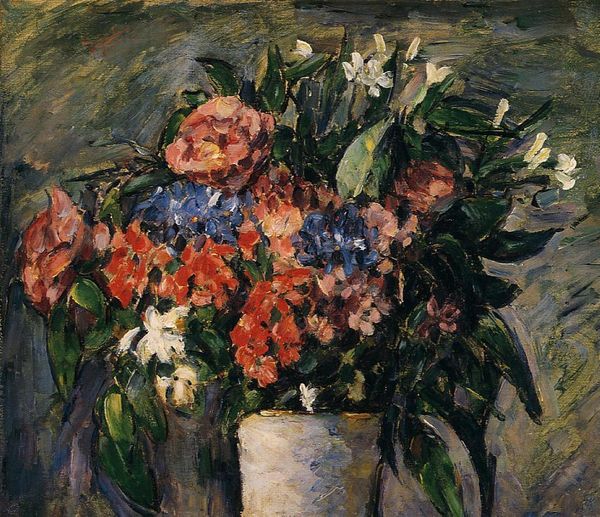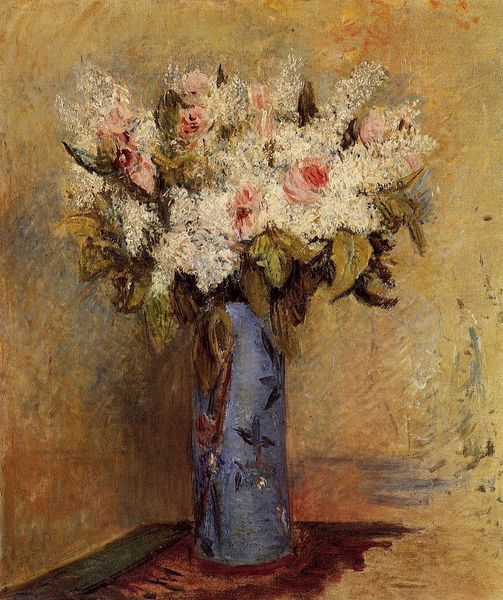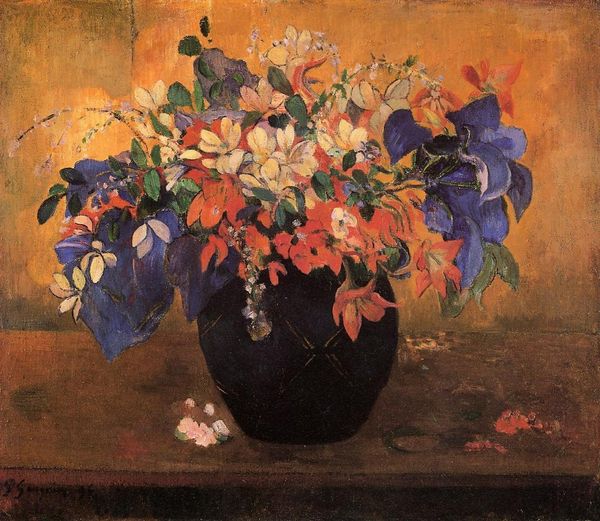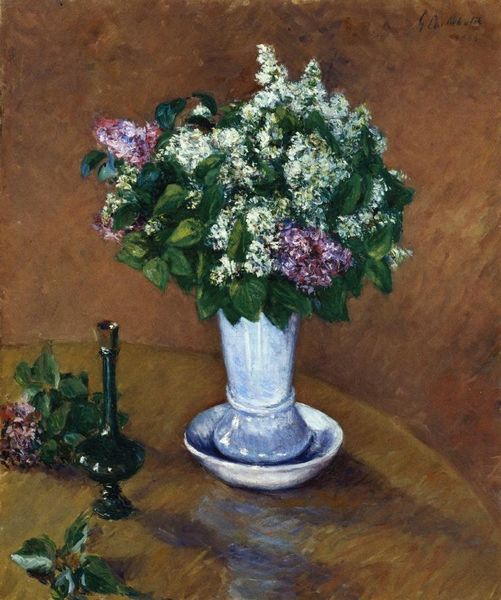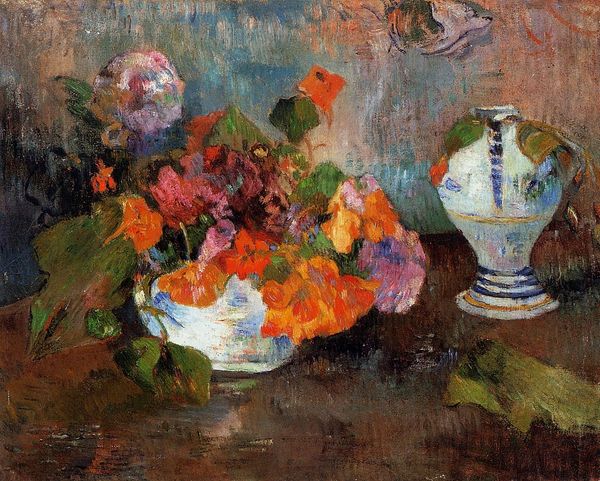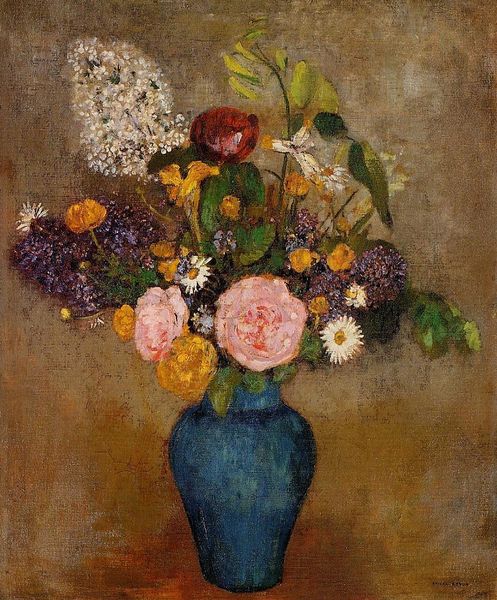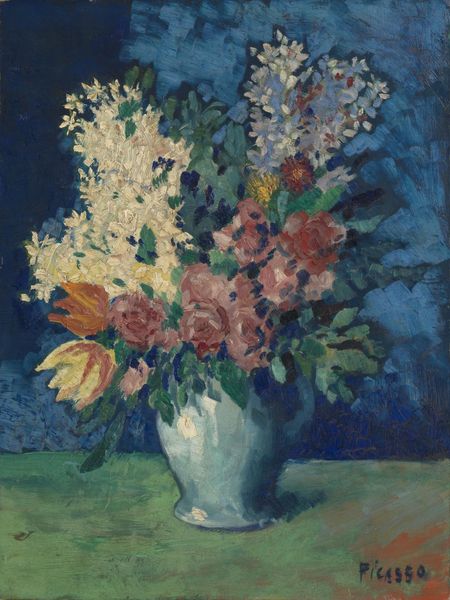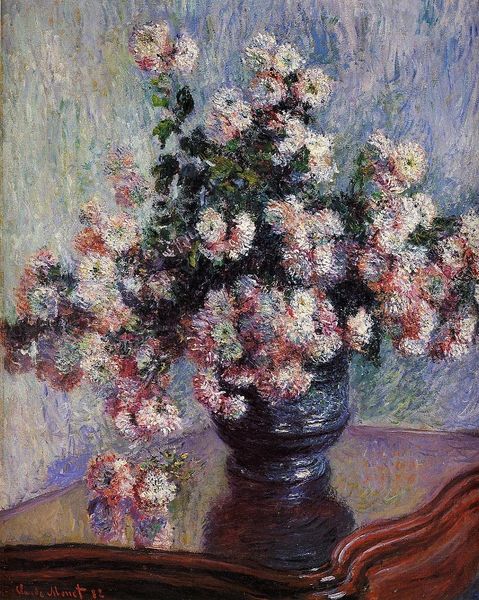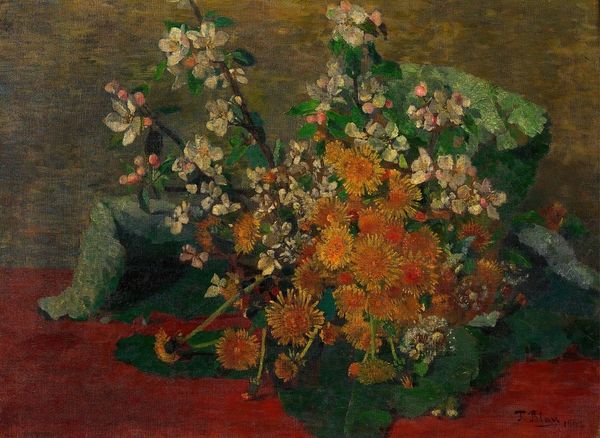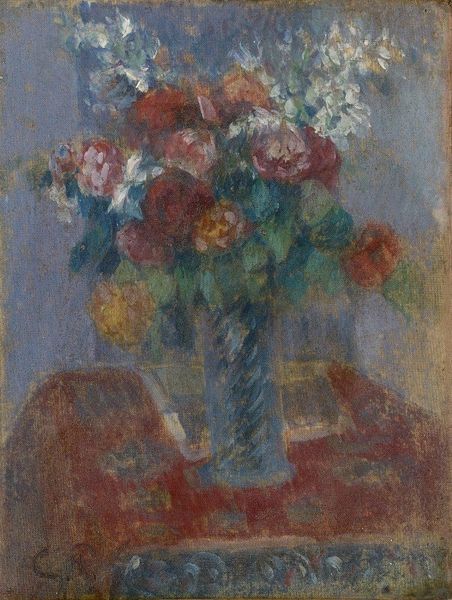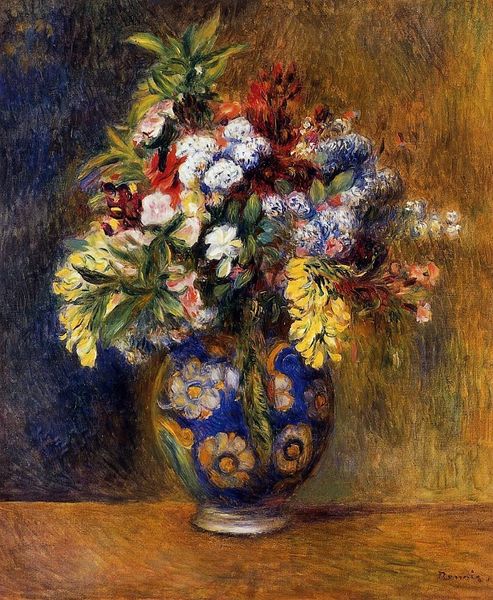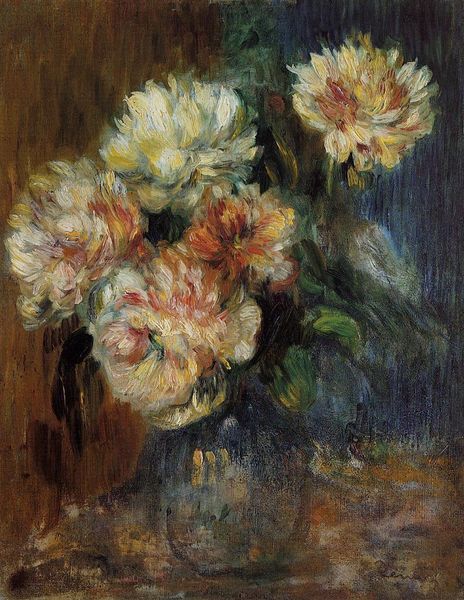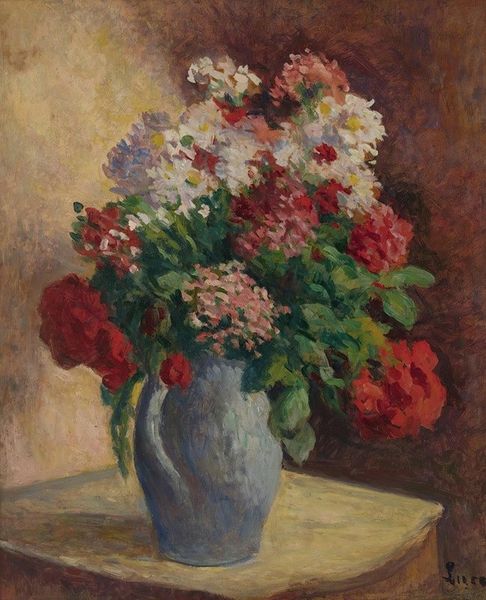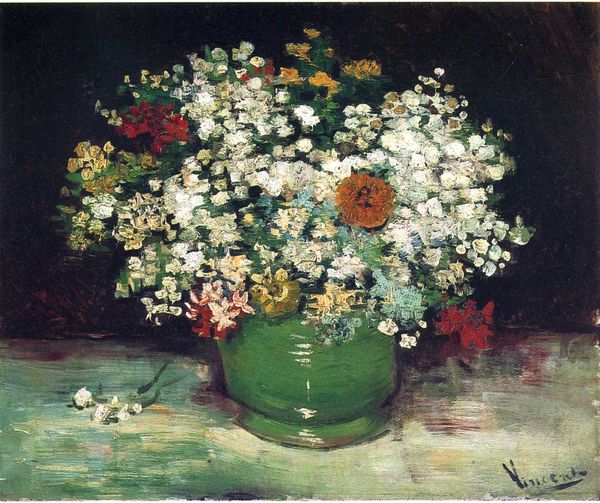
painting, oil-paint
#
painting
#
impressionism
#
impressionist painting style
#
oil-paint
#
landscape
#
flower
#
oil painting
#
plant
#
post-impressionism
#
modernism
Copyright: Public domain
Curator: Welcome. Today we’re looking at "Lilac Bouquet," painted by Paul Gauguin in 1885. It is oil on canvas and is currently held in a private collection. What is your first impression? Editor: Gloomy. It is a strangely somber still life; the colors are muted, almost grayed out. Not the effervescent joy I associate with bouquets. Curator: Interesting observation, considering his later vibrant palette. Let's look at it from a material perspective. Consider how the thick application of oil paint and short brushstrokes define the forms of the flowers, the vase, the surface it's all sitting on. Notice the way he has built up the textures. Editor: Indeed, that thick paint emphasizes the heaviness, and adds symbolic weight to such ordinary objects. I’m also drawn to the vase. It’s almost a separate still life contained within the larger one. Its shape and patterns tell its own story, what might those blue hues tell us? Curator: Vases themselves are historically significant, a utilitarian object transformed through craft into an object worthy of artistic expression. What sort of labor went into its design and construction? The same is true of the canvas itself – how the materiality is a site of labor in terms of production and how that labor adds intrinsic meaning to it all. Editor: You are absolutely right, I am so often consumed with the symbolic value, but that doesn't appear in a vacuum. As I see it, even this casual arrangement possesses a deliberate intention, perhaps commenting on the transience of beauty, or something more personal to Gauguin at that moment? Curator: It certainly captures a specific moment in Gauguin's artistic development. Consider the materials he used, they were becoming more easily accessible, which in turn afforded him an opportunity to really study the interplay between brushstrokes and subjects. This study provided a freedom and willingness to experiment, which he then applied in his Post-Impressionistic work. Editor: Seeing these familiar forms abstracted through paint is deeply personal, even intimate. Considering the weight and potential symbolism in the arrangement offers another layer to his early post-Impressionistic leanings. Curator: Well, it certainly showcases the interconnectedness of materiality and artistry, and highlights that by engaging with the tools of production can influence creativity. Editor: Yes, an engaging dialogue around a deceivingly gloomy "Lilac Bouquet."
Comments
No comments
Be the first to comment and join the conversation on the ultimate creative platform.
